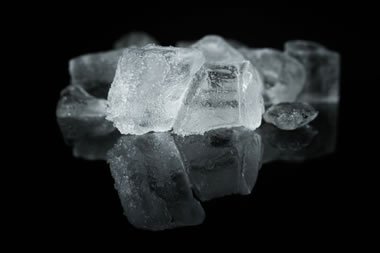Do Ice Machines Spread Legionnaires Disease?

Ice machines and chilled water dispensers are becoming increasingly popular both at home and in the workplace where they are used for a variety of purposes. At first glance, the freezing water temperatures used to create ice would suggest that opportunities for bacterial growth would be very limited and so the risks to people using them insignificant. However, this may not always be the case and here we consider if ice machines can spread Legionnaires’ disease.
What causes Legionnaires’ disease?
Legionella bacteria, the causative organism for Legionnaires’ disease grows most readily in water temperatures of between 20-45 degrees Celsius. If the temperature rises beyond 60 degrees Celsius the bacteria will die. Anything below 20 degrees will cause the bacteria to become dormant. The latter scenario means the bacteria can still multiply if the temperature of the water or ice is raised to 20 degrees or above.
These temperature ranges may suggest that ice machines and chilled water dispensers would be among the safest pieces of equipment to use in terms of legionella risk. However, research has shown there is a risk factor associated with ice dispensers.
How could the cold-water feed become contaminated with legionella?
Ice machines and chilled water dispensers offering ice or cold water do so at temperatures well below the 20-degree threshold for concern. However, each machine contains a mechanical compressor that is used to lower water temperatures. The heat given off by a compressor may be enough to warm the water inside the machine, thereby allowing Legionella bacteria to grow and multiply unseen. The bacteria could then potentially reach levels in the water where it may prove concerning for those drinking it or taking ice from the machine.
A similar scenario could occur if the machine is positioned in a warm spot, i.e. near to a radiator or other source of heat.
Have people died because of legionella contaminated ice machines?
Sadly, yes. One person died in 2013 at the University of Pittsburgh Medical Center in Pittsburgh, USA following exposure to Legionella bacteria via an ice machine. Furthermore, an outbreak at a hospital in Brisbane, Australia was found to be derived from an ice machine.
As with all hot- and cold-water systems, ice machines and dispensers should be regularly checked, cleaned and disinfected to ensure they are safe for use. These machines are common in hospitals throughout the world. This presents an additional problem – Legionnaires’ disease poses a greater risk to those who are elderly, are immunocompromised or have underlying health issues that make them weaker than the general population.
Indeed, one of the cases from Pittsburgh was highlighted when a patient had choked on an ice chip from a machine that was infected with legionella. The risk of aspiration is greater in those who are ill or have health issues that confine them to bed.
How to control legionella risks from ice machines and chilled water dispensers
Research has indicated that while Legionella bacteria becomes dormant at low temperatures, it can become active if it is released in ice which then subsequently thaws. Since this often occurs with ice machines, the potential danger is clear. An assessment of the risk followed by regular checks, cleaning and disinfecting processes should assist in minimising the risks from Legionnaires’ disease.
International legionella and water safety specialists
Our teams of water safety specialists support those responsible for the control of waterborne pathogens including Legionella bacteria in the workplace, helping them to protect their people and meet their health and safety obligations in this specialist area. We deliver professional water safety legionella risk assessments, water testing, independent compliance auditing, City & Guilds training and other environmental risk management services that help keep staff and others safe.
If you have questions about any of the issues raised above or you would like to speak with one of our legionella specialists please call us today on 0330 223 36 87 or contact us here.


